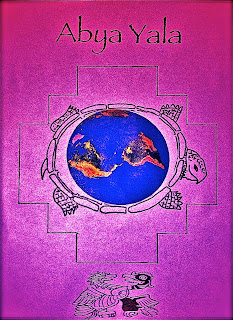Dear Special Rapporteur Anaya,
In furtherance of the objectives of the Conference and Consultation on the Significance of the Declaration on the Rights of Indigenous Peoples, which you hosted today at the University of Arizona School of Law, please consider submitting a formal inquiry to the US Justice Department regarding the following issue, namely:
The continued persecution and discrimination against Indigenous Peoples in Maricopa County, Arizona including exclusion from the procedures of investigation and remedy involving racial profiling currently under way in Maricopa County by the US Justice Department.
*******
TONATIERRA
PO Box 24009
Phoenix, AZ 85074
February 7, 2012
Attorney General Eric Holder
U.S. Department of Justice
950 Pennsylvania Avenue, NW
Washington, DC 20530-0001
Dear Sir:
It has come to our attention via
reports in the media today that the department of Immigration and Customs
Enforcement (ICE) will be opening up an office of community ombudsman to
address issues of concern by the public relevant to the scope of law
enforcement policies and operations of the agency.
We were also informed this
morning that officials of the Justice Department are meeting with community
leaders and organizations to discuss the current status of the US Justice
Department Letter of Findings
regarding the investigation of the office of the Maricopa County Sheriff, J. Arpaio.
The long march in defense of civil rights for All Peoples which began with the dismantling of discriminatory racial profiling practices that benefited the European American "white" constituencies with ethnic preferences in electoral, educational, economic, and legal systems has many chapters, but it begins with the basic recognition of universal Human Dignity and compassion.
The crossing of the Edmund Pettus bridge and the anguish of Bloody Sunday on March 7, 1965 are significant mileposts in this journey, and must be recalled now to contextualize the actions of yet another Sheriff in yet another state, for as Martin Luther King said after Selma in 1967 and before his assassination in 1968: "We have emerged from the era of Civil Rights to the Era of Human Rights."
Human Rights are inherent. The United States of North America is a
signatory of the United Nations
Universal Declaration of Human Rights. These two facts are realities that must be brought to bear
to evaluate the scope of the issues mentioned at the beginning of the
memorandum, but there is more.
On September 13, 2007 the United
Nations General Assembly adopted the Declaration
on the Rights of Indigenous Peoples.
The US was one of four governments that opposed the declaration
including the anglophile states of Canada, Australia, and New Zealand who as
derivatives, represent immigrant sovereignties that are residuals of the
colonies of the British Empire.
Governor George Wallace of
Alabama and Sheriff Clark of Selma also opposed the tides of justice, and in
the name of the "Rule of Law" committed acts of atrocity and
brutality that have left lasting wounds on the visage of the concept of America
as "Land of the Free".
Therefore, in light of the fact
that the issues of racial profiling and discriminatory policing that have begun
to be addressed in the US Justice Department Letter of Findings regarding the
Maricopa County Sheriff's office and the Melendrez vs. Arpaio decision by the US
Court of Justice HAVE NOT mentioned
the systematic practices of racial profiling against Indigenous Peoples in particular as fundamental to the overall
violations of Civil Rights, Human
Rights, and Indigenous Rights within the scope of law enforcement operations
in Maricopa County:
We now request a meeting on the
ground with the representatives of your department to discuss and explore
venues to address this ongoing and pervasive pogrom of "ethnic
cleansing" under the guise of the "Rule of Law."
Please contact me at your
convenience to discuss this proposal.
Sincerely,
Tupac Enrique Acosta. Yaotachcauh
Tlahtokan Nahuacalli
TONATIERRA
"Stopping Mexicans to make sure they are legal is not racist. If you have dark skin, you have dark
skin! Unfortunately, that is the look of the Mexican illegal."
Files of Maricopa
County Sheriff J. Arpaio,
quoted on page 28 of
US District Court Case 2:07-cv-02513-GMS
Document 494 12/23/11






